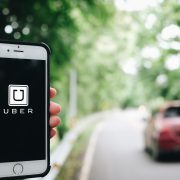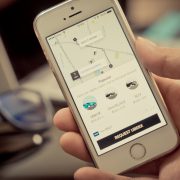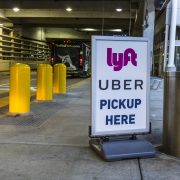In a previous essay, I discussed how the English language and its lack of central control exemplified what economist F.A. Hayek referred to as spontaneous order.
Spontaneous order is the belief that when individuals are left to their own devices, they will organically create order out of chaos. However, since we have grown accustomed to living under an extreme regulatory state, many have lost faith in humankind’s ability to self-organize.
But the beauty of spontaneous order is that it exists whether we believe in it or not, which makes any attempt at regulation not only wasteful but harmful. Those who doubt the existence of this organic order will usually attempt to demean its pivotal role by labeling it as dangerous and destructive.
Without manmade laws, it is believed that human beings will fall victim to their alleged carnal nature and seek to do harm unto others without any regard for how their actions impact others.
We have seen this type of justification from almost every government agency in existence today. Without the FDA, it is believed by many that those in the food and drug sectors will fall prey to their own self-interest and sell harmful substances in order to earn more money and grow rich at the expense of the consumer. But many fail to realize that this is not the case. And once such example is the sharing economy.
The Sharing Economy
When the sharing economy began rising to prominence in the marketplace, it was virtually unregulated. Its existence was born of the consumer’s desire for higher quality transportation.
When it came to hailing a ride, consumers were not left with many choices. Cabs had been the only game in town for over 80 years. The traditional cab companies had not had to deal with competition before, therefore, they had no real reason to innovate.
But this void in the market left a natural opening for spontaneous order to occur. Without asking for permission, companies like Uber and Lyft were able to grow their own free market legacies. And the consumers were grateful.
The model was simple, if you owned a car and wanted to make money you could turn your car into a taxi and work only when you wanted. Talk about a truly spontaneous model! But it didn’t take long for doubt in spontaneous order, and a love of cronyism, to influence policymakers.
“This must be regulated,” many shouted. Without ridesharing under the thumb of government, there was a misguided belief that chaos would roam free and consumers would be placed in harm’s way. Without having to obtain the same licenses as can drivers, what would ensure these drivers would not be a threat to consumers!
Of course, these fears completely disregard the fact that traditional cab drivers are humans too, which means they are also prone to error. And while required to obtain a license, many drivers still encounter traffic incidents and wrecks. A license does not ensure safety, or only ensures government involvement.
This lack of faith in the sharing economy led to regulations that not only harmed consumers but also those who sought employment through these services.
In addition to driver safety on the road, there was also the fear of “getting into cars with complete strangers.” And even though can drivers are also strangers, these fear tactics were used by the cab unions specifically to incite government action.
The Invisible Hand
True, human beings are not all good people, however, humans are fueled by self-interest. And as a motivator, self-interest can be a source for good. The principle of the invisible hand is the belief that even when someone’s motives are purely financial, this inspiration can actually serve to help others and benefit society as a whole.
The billionaire who loves his wealth but is also creating thousands of jobs for individuals is not by default greedy. Think of the households that now have financial security as a result of this alleged greed.
The billionaire’s self-interest has actually benefited society by creating jobs. And the goods and services created will also benefit numerous consumers. This concept of the individual hand in vital to spontaneous order. It is a natural guideline that ensures things run smoothly and that consumers and the producers both mutually benefit.
It is highly unlikely that your Uber driver will hurt you just because they can. Absent the legal consequences, the driver has accepted this job as a means to make money. The passenger, on the other hand, has used Uber because they need a ride. This mutual exchange ensures that things will run smoothly.
And let’s say, for argument’s sake, that a drive is harmful to a passenger, or that a drug or food product harms a consumer. Do we need government for accountability? The answer is no.
Feedback and word of mouth provide what is needed to ensure quality and consumer safety. Yelp exists absent any government intervention and it helps consumers make informed decisions. If you harm a consumer, those harmed will signal a warning to other consumers. Just like flocks of birds are capable of swerving to avoid predators. All animals are obsessed with self-preservation, and we will do what we need to ensure we stay safe. We do not need rules and regulations for this. In fact, these rules are the same that would have most likely prevented companies like Uber from ever existing in the first place.
Consumers want to consume quality products that will leave them safe and satisfied. This mutual understanding is exactly what makes spontaneous order so remarkable.













